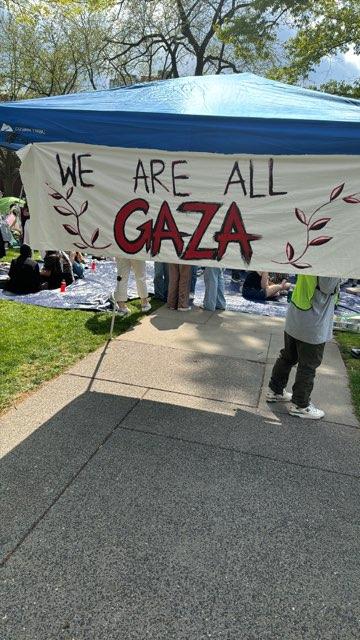Sometimes, a critique is incorrect because its author did not fully understand that which he or she was critiquing. And sometimes, a critique is incorrect because its author did not appreciate the values, systems, and parameters at play.
In the case of Dr. Aaron Koller’s critique of two recently published halakhic decisions of Rav Hershel Schachter, both of the above characteristics unfortunately apply. (In one decision, Rav Schachter ruled that Partnership Minyanim (public prayer groups which identify themselves as Orthodox, in which women lead parts of the service) are not halakhically sanctioned, and in the other decision, Rav Schachter censured the recent permitting of girls to lay tefillin at two liberal Orthodox high schools in New York City.
Although one could quite easily present a blow-by-blow rebuttal of the details of Dr. Koller’s critique, I am more interested in the fundamental issues that underlie the critique—issues which have gained prominence in recent discussion about the boundaries of Orthodoxy, that extend far beyond Dr. Koller’s critique.
(For the record, Dr. Koller misunderstands Rav Schachter’s decisions as being based on a “Daas Torah” model, whereas Rav Schachter was instead clearly establishing that halakhic adjudication requires a comprehensive mastery of halakha and the resultant deduction of halakhic axioms and values, both necessary to rule on the highly-complex issues at hand. Dr. Koller overlooks the other half dozen halakhic reasons presented by Rav Schachter in these decisions as the bases for his rulings, and he shockingly labels Rav Schachter’s decisions, all of which were presented with solid halakhic sourcing, as sociology and not Halakha—all while intermingling verbiage of deference toward Rav Schachter with that of mild impudence.)
What interests me more in this case is the underlying thesis of Dr. Koller’s critique—a thesis that is common to nearly every effort to advocate or legitimize contemporary Jewish religious innovations under the banner of Orthodoxy. Hence, I utilize Dr. Koller’s critique here as a point of reference for a far broader topic.
Dr. Koller, after his attempt to debunk the halakhic methodology of Rav Schachter’s rulings, turns to two fronts: cost-benefit analysis from a sociological perspective and finding meaningful leadership roles for women within Orthodoxy. Let’s look at each of these, as a focus on these same fronts, with the same arguments, is to be found in the writings of nearly all others who have promoted positions similar to those of Dr. Koller.
Dr. Koller writes:
“In fact, there is good reason to believe that the Orthodox community would be putting itself in more serious danger by refusing to allow such innovations as partnership minyanim than by allowing them. The people involved in such initiatives are not on their way to Conservative Judaism—unless they are pushed there by responsa that grant them no place in Orthodoxy. These innovative practices, far from being a gateway to other denominations, may actually be halakhically acceptable ways to keep more people in the community.”
In other words, the need to keep people within Orthodoxy should validate the practices which Rav Schachter ruled are prohibited, as there is some halakhic opinion out there that permits these practices. Aside from the use of sociological concerns to challenge the integrity of halakhic methodology – a vast area beyond the expertise of anyone other than halakhic experts of the highest caliber – this position argues that enabling people or actions to identify as within Orthodoxy is a consideration that should in effect dictate halakhic standards.
Such a position has virtually no precedent in halakha and amounts to a radical reform of the contours of Orthodox Judaism. The notion that one should compromise normative Orthodox standards in order to include within Orthodoxy actions which violate those standards is foreign to Orthodoxy. (Yes, there are rabbis who consider Partnership Minaynim and other such endeavors permissible, but these rabbis are not halakhic authorities on a par with those rabbinic sages who oppose such endeavors. The fact that a rabbi of far lesser halakhic expertise considers something permissible, or forbidden—especially in a matter of immense weight and complexity—does not provide license to follow that rabbi’s opinion, and usually does not at all factor into the halakhic equation.)
Although every effort must be made to bring people close to Torah and identification with Orthodoxy, redefining the halachic parameters thereof toward this effort has no basis or sanction. If one feels that he or she cannot fully adhere to halakha, that is one thing, but to redefine Halacha in a way that classifies actions which otherwise do not conform to it as halachically sanctioned is unacceptable, violating millenia of halakhic tradition and adjudication.
Dr. Koller then turns his attention to the issue of enabling women to find meaningful roles within Orthodoxy:
“[T]he biggest threat to the stability of the Orthodox community is the inability to accommodate to the changed social realities of modern society in ways that are halakhic yet innovative. If the Orthodox community cannot find space for its women to take on meaningful roles of religious leadership in thought, Jewish law, and practice, then the best, brightest, and most motivated women and men will find a spiritual home elsewhere.”
This argument, representative of those of many other advocates for halakhic innovation in the interests of egalitarianism, has confused Orthodox Judaism with Western secular political and professional systems. The basis for such systems is that of rights; every member of the party, every practitioner, and every constituent should have the right to lead and the right to find self-fulfillment through free practice. The focus is on personal expression and self-advancement, whether for altruistic or self-serving reasons. Western secular society has placed great import on self-realization and the individual being able to serve as a leader and practitioner in any sphere that he or she so desires, and the above sentiments of Dr. Koller and others regarding Orthodoxy fit into that model.
In contrast, the essence and purpose of Torah observance is submission to God, of surrender to His Will. Rav Soloveitchik zt”l articulated this beautifully through the message of the Akeidah (the Binding of Isaac), wherein the foundational value of Torah being that of surrender to the Divine Imperative is elucidated. As one of my friends commented, Judaism is about responsibilities, whereas Western secular values are about rights. It is not that anyone’s rights should be denied, but when it comes to Torah values and practice, religious expression must flow from a sense of surrender to the Will of God and not be manifest as a form of self-advancement, the expression of privileges and rights, or a demand to lead, resulting in departure from Orthodoxy should this demand not be realized. Such an approach wholly misunderstands what Orthodoxy is about.
While Rav Schachter’s recent decisions may not influence any hard-core advocates of Partnership Minyanim and of women laying tefillin to change their ways, the decisions will enlighten those who are unclear about these issues, and the decisions serve the critical role of explaining both what goes into halakhic adjudication as well as the complex halachic factors and forces that must be part of the process. Moreover, these decisions of Rav Schachter affirm that there are indeed meaningful boundaries to Orthodoxy that can only be formulated with great halackhic mastery and gravitas, and that legitimate manifestations of Torah practice must always emanate from surrender to the Will of God and never be an expression of the Will of Self.
Avrohom Gordimer (CSL ’96, RIETS ’93, ‘YC 89) is a member of the Executive Committee of the Rabbinical Council of America, as well as the New York Bar. The opinions in the above article are solely those of the author and do not reflect the opinions of any other individuals or entities.
By Avrohom Gordimer













